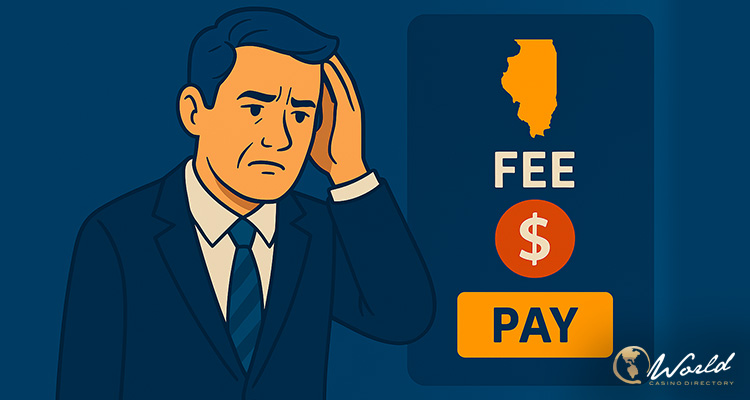Flutter Entertainment, the parent company of FanDuel, has announced a new transaction fee that will impact sports bettors in Illinois later this year. Beginning September 1, 2025, customers placing bets on FanDuel in the state will be charged an additional $0.50 per wager. This move comes as a direct response to a new tax structure implemented by Illinois lawmakers, which will dramatically increase the operational costs for licensed sports betting operators in the state.
The Illinois legislature recently passed a law imposing a fee of $0.25 on every sports bet up to 200 million bets per operator annually. For any volume exceeding that threshold, the tax doubles to $0.50 per wager. This per-bet fee is set to take effect on July 1, 2025, making Illinois the first U.S. state to levy such a tax on individual betting transactions.
Rising Tax Burdens Drive Surcharge Decision
FanDuel’s decision to implement the 50-cent charge stems from what Flutter calls an unsustainable rise in operational expenses resulting from Illinois’ evolving tax policies. Just a year earlier, the state replaced its 15% flat tax on adjusted gross revenue (AGR) with a tiered structure that peaks at 40% for top-earning sportsbooks—specifically targeting major platforms like FanDuel and DraftKings.
Flutter emphasized that it had previously absorbed these elevated tax costs without passing them on to consumers. However, with the new per-wager tax adding yet another financial burden, the company asserts that it has little choice but to begin charging customers directly.
“In response, from September 1, 2025, FanDuel, Flutter’s US market-leading brand, announces that it will introduce a new $0.50 transaction fee on each bet placed on its platform in Illinois,” the company stated. “This decision reflects the significant increase in the cost of operating in Illinois driven by the new Illinois Transaction Fee.”
Flutter CEO Peter Jackson underscored the broader implications of the state’s taxation strategy: “It is important to recognize that there is an optimal level for gaming tax rates that enables operators to provide the best experience for customers, maximize market growth and maximize revenue for states over time. We are disappointed that the Illinois Transaction Fee will disproportionately impact lower wagering recreational customers while also punishing those operators who have invested the most to grow the online regulated market in the state.”
Backlash and Industry Reactions
The announcement from FanDuel makes it the first major sportsbook to adjust its pricing model in response to Illinois’ tax changes. DraftKings has indicated it may follow suit, with a spokesperson stating, “In response to the recent and prior mobile sports wagering tax increases in Illinois, DraftKings anticipates taking action and expects to share more information soon.”
Reactions from within the industry have been strong. Jeremy Kudon, president of the Sports Betting Alliance—which includes FanDuel, DraftKings, BetMGM, and Fanatics—expressed frustration over the legislative outcome. “The anger is palpable,” Kudon said during a podcast appearance. “It is the only way to send a message to legislators that this matters.”
Smaller operators like Circa Sports have also raised concerns, with CEO Derek Stevens noting that for companies with less volume, taking bets under $10 may no longer be viable due to the fee structure.
Concerns Over Market Impact and Player Behavior
Industry leaders fear the fee may drive casual bettors—particularly those wagering smaller amounts—to reconsider their activity or even turn to unregulated betting sites that are not subject to such fees or taxes. Jackson noted the risk of a migration toward illegal platforms, stating, “We also believe the introduction of the Illinois Transaction Fee will likely motivate some Illinois-based customers to bet with unregulated operators. These operators do not contribute tax revenue to the state, will not collect the newly announced transaction fee and do not offer the same levels of customer protection that regulated operators provide.”
The financial implications for bettors are clear. For a typical wager of $10, the 50-cent surcharge represents an added 2.5% cost. This means players would need to win a higher percentage of their bets to maintain profitability—up from 52.4% to 55.6% on standard -110 odds—an increase that may deter participation.
Flutter Open to Reversing Course
While the surcharge is currently set in stone, Flutter has left the door open to change. The company confirmed it would eliminate the 50-cent fee “immediately” should Illinois lawmakers reverse the per-bet tax.
With the Illinois Gaming Board currently reviewing the legality of the surcharge and other operators weighing their next steps, the long-term effects of the new tax model remain to be seen. For now, however, sports bettors in Illinois can expect a more expensive experience on FanDuel starting this fall.


